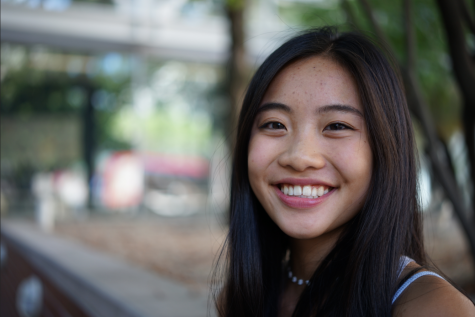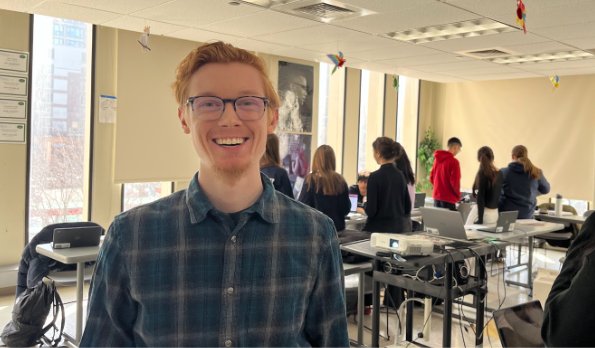Clean water and air as virus spreads
Covid-19 effects people but protects the planet
Less air pollution in China, clear canals in Venice, and an overall slowdown of economic activity are the result of social distancing measures. With fewer people driving cars and going to work, coronavirus has made a positive impact on climate change and air quality.
According to AP Environmental Science teacher, John Hancock, much of the productivity that contributes to the economy results in carbon emissions as a byproduct, and carbon emissions will decrease as a consequence of the likely recession we are heading into. With the decrease in fuel emissions there is also a decrease in airborne pollutants that contribute to smog. This will also benefit folks with respiratory conditions that are sensitive to air pollution such as asthma.
Hancock delves into the origins of viruses. He starts by explaining that when people get sick, it’s not a big deal. Diseases that are not harmful are ones common in humans and have co-evolved for thousands of years.
“However, dangerous diseases are typically the ones that jump species and find a host with which it does not share an evolutionary history. Diseases that jumped to humans from a non-human host include the novel coronavirus as well as all the influenzas, HIV, ebola, SARS, MERS, the bubonic plague, and more,” he said.
He adds that it’s important not to negatively stigmatize cultures utilizing bushmeat markets because the markets exist as necessary sources of food for communitites that have been harmed by colonialism.
“We can do better as wealthier nations of connecting these communities with sustainable sources of nutrition,” said Hancock.
He added, “My greatest hope is that we will emerge on the other side of this with greater social intelligence for grappling with other issues that require a cooperative/altruistic approach such as climate change.
Isabel Sices ‘20, founder of the compost initiative at school believes that the lock down order has allowed many positive environmental impacts, but at the expense of many lives.
She explains that these benefits are not going to last beyond this pandemic.
“In order to get those lasting benefits we really need large structural change from the governments of the world,” said Sices.
She further describes that millions of people dying is not sustainable by any means because those are people whose voices and ideas will never be heard again, whose voices and ideas are valuable.
“So yes, there might be some positive environmental impacts, but when you look at those impacts in conjunction with the amount of destruction this disease is causing the human race, that very quickly negates any positive environmental benefits,” she said.
The Covid-19 crisis may provide an opportunity for change, but Sices is not convinced it will be taken.
“Airplanes are still flying across our country without any passengers, emitting massive quantities of greenhouse gases, and we’re all sitting at home watching Tiger King, marveling more at the crazy drama in the show than the obvious abuse the animals are experiencing,” she said.
She notes that there will always be progress to be made, but encourages others to not give up or feel hopeless. Sices makes an example out of the people who panic bought toliet paper off all of the shelves, and suggests that if those people decided to stop buying every single plastic thing they would normally buy and instead buy the low-waste alternative, then the country’s environmental impact would lighten tremendously.
“All because of individuals who recognized their power and worked together towards a single goal, corona has certainly proved individuals’ buying power as consumers and the massive impact we can make when we all unite together,” said Sices.
Aiden Domingo ‘21 always believed that humanity was placing too many pressures on the planet, and failing to take care of the planet has resulted in deadly consequences.
“Nature is sending us a message with the coronavirus pandemic and the ongoing climate crisis,” said Domingo.
He explains that the immediate priority should be to protect people from the coronavirus and prevent it from spreading, but clarifies that the long term goal should include steps towards protecting the planet.
“If we don’t take care of nature, we can’t take care of ourselves,” he said.

HOBBIES: Golf, Photography, Reading
FAVORITE MOVIE: The Secret Life of Walter Mitty
FAVORITE CLASS: Journalism
IN TEN YEARS: Traveling the world
ONE...




